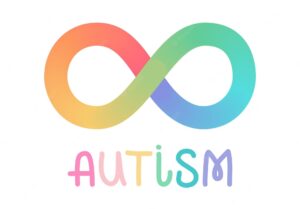
Autism Spectrum Disorder (ASD) presents a unique set of challenges that can significantly impact an individual’s ability to communicate and connect with others. Speech-Language Pathologists (SLPs) play a crucial role in addressing these challenges. They offer individualized support to help autistic individuals navigate their social communication needs. In this blog, we will explore the various ways SLPs assist individuals on the spectrum, from enhancing verbal and nonverbal communication skills to fostering meaningful social interactions.
How Does Speech Therapy Help?
Speech-Language Pathologists (SLP’s) work with individuals, families, and caregivers to develop communication skills, adapt to different settings, and expand interests. Here’s how:
- Social Skills and Turn-Taking: SLPs teach social skills, helping individuals to engage in conversations, understand turn-taking, and build meaningful relationships.
- Communication Tools: From verbal cues to augmentative and alternative communication (AAC) devices, SLPs introduce tools that enhance communication effectiveness.
- Adaptation Skills: By working on adapting to new tasks and environments, SLPs assist individuals in becoming more comfortable and resilient in various settings.
- Interest Expansion: Encouraging new activities helps broaden interests and introduces diverse experiences, increasing adaptability.
- Literacy Skills: Reading and writing are foundational skills that SLPs may support, fostering better comprehension and expression in different contexts.
- Individualized Communication Plans: Each individual has unique needs, so SLPs create tailored communication plans, offering a customized path to progress.
How Speech Therapy Helps Families of Autistic Children
Families are a crucial part of the support system, and SLPs provide guidance to strengthen communication and connection with autistic children. For caregivers, SLPs offer strategies that empower communication:
- Descriptive Speech: Talking about actions and events helps a child associate words with experiences, building vocabulary.
- Language Expansion: Adding extra words to what the child says encourages language development.
- Play-Based Communication: SLPs model supportive interaction during play, enhancing everyday communication without taking over the activity.
- Routine-Based Interaction: SLPs encourage caregivers to integrate communication into daily routines, promoting natural and frequent practice.
- Sensory-Sensitive Adjustments: Adapting activities based on the child’s sensory preferences ensures a comfortable learning environment.
Supporting Adults with Autism Through Speech Therapy
For adults with autism transitioning into the workforce, SLPs provide vital support to navigate professional settings. Key areas of assistance include:
- Interview Skills: Practicing cover letter writing and interview responses builds confidence for job applications.
- Self-Advocacy and Communication: SLPs empower adults with strategies to advocate for themselves and clearly express their needs.
- Workplace Accommodation Navigation: Understanding workplace rights and accommodations enables a smoother adjustment to professional environments.
- Professional Confidence: Building confidence in professional interactions supports success in the workplace.
- Organizational Skills: Developing organizational habits for handling job tasks contributes to independence and job satisfaction.
Autism brings unique challenges and strengths, and speech therapy offers valuable support for communication and social skills. SLPs work with individuals and families at every stage, helping them connect with others and adapt to different environments. With the right support, people with autism can grow in independence, confidence, and connection with those around them.
_________________________________________________________________________________________
-EMILY SMITH, Illinois State University, Senior Research and Marketing Intern
-NICOLE BUTLER, M.S., CCC-SLP/L (ASHA Certified and licensed Speech-Language Pathologist, Founder and Executive Director of Speech Within Reach.)
SPEECH WITHIN REACH provides in person and virtual telehealth speech therapy for children and adults. We are happy to support your speech therapy needs. Please feel free to reach out to us.
